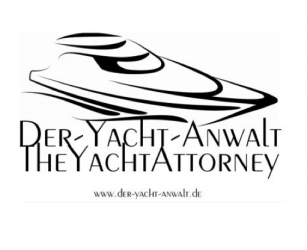Introduction: The Reality of Yacht Brokerage
The allure of yacht brokerage is undeniable: a lucrative career coupled with a glamorous lifestyle of yachts, sunshine, and exclusive clientele. Yet, as outlined in Breaking Into Yacht Brokerage, an e-book of the passioned broker David Seal, I just had on my desk with interesting insights and lessons, the industry’s complexities are often underestimated. Many aspiring brokers enter the field ill-prepared, focusing on quick financial gain while neglecting the technical, legal, and tax intricacies integral to their clients’ success.
This oversight not only jeopardizes transactions but also strains relationships with essential legal and compliance professionals.
I want to put some light onto the scenery from the perspective of a yacht-attorney who often stays inbetween the worlds of interest…
I.
1. The Knowledge Gap: A Barrier to Professionalism
As highlighted in David´s e-guide, yacht brokerage demands more than sales acumen. Success in the field hinges on a broker’s ability to navigate technical knowledge of yachts, develop industry connections, and understand compliance and regulatory frameworks.
Common Pitfalls of less-Prepared Brokers
- Superficial Understanding of Regulatory Requirements:
Brokers often lack familiarity with the complex legal, fiscal and tax frameworks governing yacht transactions, including:- International conventions like MARPOL and SOLAS, which regulate environmental and safety standards for yachts.
- Regional registration requirements that impact the yacht’s operational flexibility and tax implications.
- Inadequate Appreciation for Tax Implications:
David underscores the importance of understanding tax structuring for superyachts. For instance:- VAT Challenges in the EU: Incorrect ownership structuring can lead to steep VAT penalties, significantly increasing the cost of yacht ownership. Especially countries with strong CFC or hidden tax rule – as man EU countries all in front Germany – are a challenge for designing the legal and fiscal framework of the game.
- Flag State Selection: Brokers unfamiliar with the tax benefits or pitfalls of certain flag states risk recommending suboptimal registrations.
- Overconfidence in Handling Complex Transactions:
Many brokers fail to recognize when a transaction demands specialized expertise. For instance:- Drafting contracts without legal oversight often leads to ambiguous terms or unenforceable or contradictory clauses never being enforceable.
- I come from industries with a strong emphasis on compliance, and I have never encountered a sector quite like the yachting industry, where there is so much reliance on poorly executed, copy-paste paperwork with little regard for compliance or structured requirements. The prevailing attitude seems to be: “Closing the deal is all that matters—everything else is just an obstacle.”
- Overlooking due diligence on the yacht’s history, such as encumbrances or compliance with safety certifications.
2. Legal and Compliance Professionals: Essential Allies in Brokerage
A recurring theme is that successful brokers are those who understand the value of collaboration. Attempting to handle legal, tax, and compliance matters without involving specialists creates unnecessary risks.
Key Areas Requiring Professional Input
- Contractual Precision:
Yacht sales agreements are multifaceted documents, often including:- Payment schedules tied to survey results or milestones for custom builds.
- Comprehensive warranties protecting the buyer from undisclosed defects.
- Provisions for arbitration or litigation in case of disputes. Brokers who attempt to draft or modify these agreements without legal advice expose their clients—and themselves—to potential liabilities.
- Tax Structuring:
David emphasizes that many superyacht buyers rely on tax-efficient ownership structures. A failure to involve tax advisors can lead to:- Double taxation or unexpected VAT liabilities when moving the yacht between jurisdictions.
- Non-compliance with anti-money laundering regulations, particularly if the client is establishing offshore holding entities.
- Regulatory Compliance:
Ensuring that a yacht adheres to safety and environmental regulations is critical, particularly for vessels crossing international waters. Brokers often lack the technical knowledge to verify compliance, which can result in fines or operational restrictions for the client.
3. Why Many Brokers Struggle with Collaboration
The reluctance of some brokers to involve legal and compliance experts stems from several underlying factors identified by David:
- Ego and Misplaced Confidence: Many brokers view themselves as the sole authority in the transaction, fearing a loss of control by involving other professionals.
- Lack of Awareness of Their Own Limits: Brokers often underestimate the complexities of yacht ownership, failing to recognize the depth of expertise required in legal and tax matters.
- Short-Term Thinking: The drive to close deals quickly leads brokers to bypass critical steps, prioritizing immediate financial rewards over long-term client satisfaction and reputation.
4. Recommendations for Brokers: Embrace Transparency and Collaboration
David provides practical advice on building a successful career in yacht brokerage, much of which underscores the importance of transparency and teamwork.
Steps to Professional Success
- Acknowledge Limitations:
Brokers must recognize when to defer to legal and tax professionals. This not only ensures compliance but also enhances the client’s trust in the process. - Build Strategic Partnerships:
Developing relationships with attorneys, compliance experts, and tax advisors allows brokers to offer comprehensive services. For example:- Partnering with a maritime attorney for contract drafting and dispute resolution.
- Consulting a tax advisor to guide clients through VAT structuring and flag state selection.
- Prioritize Client Interests Over Personal Gain:
Acting transparently—such as openly communicating the need for expert involvement—builds credibility and strengthens long-term client relationships. - Invest in Knowledge:
Brokers should continuously educate themselves on legal and tax developments affecting the industry. This could include:- Attending seminars on maritime law and yacht taxation.
- Networking with professionals in related fields to stay updated on best practices.
5. Long-Term Benefits of a Collaborative Approach
Brokers who adopt a collaborative mindset reap significant rewards:
- Enhanced Reputation: Clients respect brokers who prioritize professionalism and transparency, resulting in repeat business and referrals.
- Reduced Legal Risks: Involving experts minimizes the likelihood of disputes or regulatory non-compliance.
- Stronger Industry Relationships: Cooperation with legal and compliance professionals fosters mutual respect and opens doors to new opportunities.
Conclusion: Navigating the Future of Yacht Brokerage
The yacht brokerage industry is a high-stakes field requiring a delicate balance of salesmanship, technical expertise, and professional collaboration. As the e-book aptly highlights, brokers who rely solely on “half-knowledge” risk not only their clients’ satisfaction but also their own careers. By embracing the value of legal, tax, and compliance experts, brokers can position themselves as trusted advisors, ensuring smooth transactions and securing long-term success in this competitive industry.
II.
Thoughts from a Yacht Attorney: Bridging the Gap Between Speed and Compliance
As a yacht attorney, I often find myself navigating a delicate balance between facilitating transactions and ensuring that the complex web of legal, tax, and compliance requirements is addressed properly. Yet, within the high-energy, sales-driven environment of yacht brokerage, it’s not uncommon to be perceived as a “deal breaker” by brokers and salespeople eager to close deals quickly.
1. The Misunderstanding: Efficiency vs. Expertise
The root of this perception often lies in a misunderstanding of my role. While brokers and sales professionals aim for a swift and smooth transaction, they sometimes view legal and compliance processes as unnecessary hurdles. However, my involvement is not to obstruct the deal but to ensure:
- Sustainability of Ownership: Clients need a yacht that complies with international and local laws to avoid future legal disputes or financial penalties.
- Protection of Investments: Yachts are substantial investments, and poorly drafted contracts or ignored regulatory requirements can lead to significant financial losses.
Unfortunately, the desire for expediency can lead to shortcuts, such as bypassing critical due diligence, overlooking tax implications, or sidestepping regulatory obligations. These are not minor oversights but potential crises waiting to unfold.
2. The Reality: A Floating Enterprise Across Jurisdictions
A superyacht is far more than a luxury vessel; it is a complex, floating enterprise that operates across multiple jurisdictions, each with its own set of rules. For example:
- Cross-Border Taxation: VAT requirements differ dramatically between jurisdictions, and incorrect structuring can lead to fines or operational restrictions.
- Compliance with Maritime Law: Yachts must adhere to international safety standards (SOLAS), environmental regulations (MARPOL), and local registration laws, which can vary widely.
- Ownership Structures: Setting up the correct corporate or trust structure for ownership can optimize tax liabilities and protect the client, but this requires careful planning and legal oversight.
Without addressing these layers of complexity, a “fast and smooth” deal may very well become a legal and financial nightmare for the client down the road.
3. Why Collaboration is Key
I believe the tension between brokers and attorneys stems from a fundamental difference in perspective:
- Brokers focus on the immediate goal: Closing the sale and satisfying the client in the short term.
- Attorneys look at the long-term implications: Ensuring the transaction holds up under scrutiny, both legally and financially.
The key to resolving this tension is collaboration:
- Building Trust: When brokers and attorneys understand each other’s roles and objectives, they can work together to achieve both speed and compliance.
- Communicating Value: My role is not to hinder the process but to safeguard the deal and protect all parties from potential liabilities.
- Educating Stakeholders: Sales professionals often benefit from understanding the complexities behind seemingly bureaucratic processes, such as flag selection or tax optimization.
4. The Client’s Perspective
At the end of the day, it is the client who bears the consequences of a poorly executed deal. They trust both brokers and attorneys to guide them through the yacht-buying process:
- Brokers provide access to the right yacht and facilitate negotiations.
- Attorneys ensure that the yacht is legally and financially sound, shielding the client from unexpected pitfalls.
When attorneys and brokers collaborate effectively, the client receives the best of both worlds: the excitement of acquiring a yacht and the assurance that their investment is protected.
5. Conclusion: From Perceived Barrier to Essential Partner
Rather than being seen as a “deal breaker,” yacht attorneys should be recognized as essential partners in ensuring the deal is not just completed but completed correctly. The complexity of purchasing and operating a superyacht demands a team effort, where sales professionals focus on closing the deal while attorneys handle the intricate challenges of compliance, contracts, and long-term risk mitigation.
In this light, I encourage brokers and salespeople to view legal involvement not as a hindrance but as a safeguard—a crucial step toward delivering a truly seamless and successful transaction for the client.


